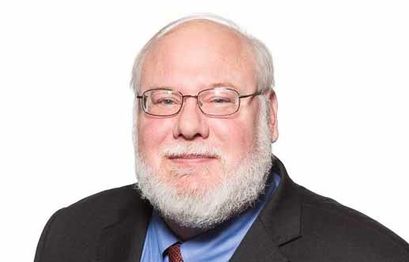The Heritage Foundation‘s Senior Fellow in Economic Policy says he is encouraged by the recent steps taken to improve America’s business climate, plenty of work on many fronts needs to be completed before businesses can truly flourish.
David Burton focuses on tax matters, securities law, entitlements and regulatory and administrative law issues as The Heritage Foundation’s senior fellow in economic policy.
Mr. Burton is a featured speaker at FinFair 2015, which takes place on July 29 in New York City. FinFair 2015 brings together some of the brightest minds in the crowd-centric retail alternatives market and the Wall Street establishment to discuss how the markets of the future will be shaped.
“Entrepreneurship is in decline, which is really a first since it began to be measured in the 1970s and probably the first time it has actually occurred since the Great Depression,” Mr. Burton said.
The fewer number of people starting their own businesses is especially troublesome because entrepreneurs are a dynamic source of jobs, innovation, and new technologies, he explained. In short they come up with better ways of getting things done. The benefits extend to non-technological industries as they develop increasingly efficient manufacturing processes that lead markets to perform better, he added.
Like many in the industry, Mr. Burton cautions against believing equity crowdfunding and Regulation A+ are the magic formulae which will lead to prosperity for all.
“Equity crowdfunding is still largely an idea as the SEC hasn’t released guidelines yet,” Mr. Burton explained. “Regulation A+ will have a significant impact on midsize businesses, but not small ones because they are not blue sky exempt unless they participate in Tier 2, which is a major administrative burden.”
One topic Mr. Burton will address at FinFair are the importance of secondary markets and venture exchanges, which will play a key role in the amount of influence equity crowdfunding has on America’s SME landscape.
“If people know they can sell, they are much more likely to make an investment,” Mr. Burton said. “If they cannot, the legal burden is much higher and the investment is much less liquid, which makes it less attractive.”
Mr. Burton elaborated on those remarks during testimony he gave before the U.S. House of Representatives’ Capital Markets and Government Sponsored Subcommittee of the Committee on Financial Services On May 13.
“Improving the secondary markets for small-capitalization firms will help investors reach a higher return and reduce risk, improve entrepreneurs’ access to capital, and promote innovation, economic growth, and prosperity,” Mr. Burton said.
Improving secondary markets for small firms involves three key steps, Mr. Burton added. The first is to improve the regulatory environment for non-exchange over-the-counter securities traded on alternative trading systems by providing the same reduced blue sky burdens enjoyed by larger companies, re-establishing the list of marginal securities, and removing market making impediments caused by regulation SHO which adopted standards aimed at eliminating naked short selling.
The second step is to amend the Securities Exchange Act to establish venture exchanges.
The third is to improve the regulatory environment for secondary sales of private securities, mainly by better organizing the section 4 (a)(1-1/2) exemption which will ensure platform-traded securities are eligible for the exemption.
Mr. Burton is optimistic we could see important changes which will make America’s business climate much more amenable in the next decade.
“It depends on if Congress hears from the people and if they choose to prioritize this. Another factor is whether or not this or the next president chooses to support those changes.”
“It’s not magic. Any action is one part of a series of policy changes which are necessary to alleviate the burden on small and medium businesses.”
That burden keeps growing due to increased regulation that forces entrepreneurs to spend more and more time figuring them out, leaving less time to actually work on their business.
“We’ve just piled on hundreds of rules which are a drag on a business’ ability to launch and grow,” Mr. Burton said, citing examples of tax policy, increasingly complex employment laws, industry-specific regulations, the health care law (“monstrously complex”) and even components of environmental and energy law.
“I get paid to do this and I cannot keep track of all of these things,” Mr. Burton explained. “It’s foolishness.”
Mr. Burton said he once carried a copy of some legislation in his wallet and when he met with a lawyer asked them if they could make sense of it. Few could out of the dozens he approached, he said.
“You are supposed to run your business and not break federal rules, but it’s impossible. Many firms are not compliant because it cannot be done.”
“It forces many to take risks and sometimes they get caught.”










